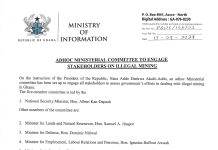Universal Access to Information is a day stated by the United Nations to be commemorated on the 28th of September every year. This year, the International Day for Universal Access to Information will focus on the importance of the online space for Access to Information.
It is in our quest to bridge the information access divide by empowering societies in the digital era to promote effective access to Information.
In an increasingly interconnected world driven by information and technology, the concept of Universal Access to Information (UAI) has become more critical than ever before. UAI refers to the fundamental right of all individuals to access, seek, and impart information freely, without discrimination or censorship. This universal right not only underpins democratic values but also plays a pivotal role in socio–economic development, education, healthcare, and fostering global solidarity.
The Digital Divide
The absence of internet and digital technologies in some parts of the country serves as a major challenge to bridge the gap to access to Information. One of the greatest challenges to achieving UAI is the digital divide. While the internet and digital technologies have revolutionized access to information, a significant portion of the global population still lacks reliable access to Information. Bridging this divide is essential to ensure that everyone can enjoy the benefits of UAI.
In terms of education, UAI can significantly enhance education. With access to online learning resources, students can access a world of knowledge, regardless of their geographic location or socio–economic
background. This can level the playing field and reduce educational disparities.
Universal access to medical information and telemedicine services is critical, especially in remote areas. Patients can receive medical advice, diagnosis, and even treatment without having to travel long distances.
Also, easy access to Information encourages economic Development. Information is a valuable resource for economic growth where entrepreneurs and businesses can access market data, connect with customers, and develop innovative solutions more easily with UAI.
It also encourages civic engagement in the sense that Universal Access to Information empowers citizens to stay informed about government actions and policies. It allows them to participate more effectively in the democratic process, holding their leaders accountable.
The Role of Government
Government plays a crucial role in ensuring Universal Access to Information by enacting and enforcing laws that protect freedom of information and expression. This includes laws that guarantee access to public information held by government bodies. The government should also ensure an effective regulation of the information provided.
It is the mandate of the Government to invest in digital infrastructure, such as broadband internet access, to reduce the digital divide. This would go a long way to make information accessible to everyone irrespective of their geographical difference.
The Government must educate the public on Digital Literacy (Education). This can be achieved by the Government through the Ministry of Communication. The Ministry must initiate digital literacy programs to equip citizens with the necessary skills needed to navigate the digital world safely and effectively through the Ministry of Education. Also, the government must add digital education to the academic curriculum through the Ministry of Education. The success of this initiative would go a long way to help the country bridge the gap of digital illiteracy in the rural part of the country.
The Government must earn the trust of the people by ensuring transparency. The government is expected to lead by example by making government information and processes transparent and accessible to the public.
The Role of Technology Companies
The various Tech companies in the country also have a role to play in advancing Universal Access to Information.
They must promote Affordability. The various Tech Companies must develop and promote affordable technology solutions to ensure that even those with limited financial means can access information. In the quest to be easily accessible to the public, we must also take into consideration and tackle the financial constraints that come with it.
Another key issue Tech Companies must consider is content moderation. They must balance the need for content moderation to protect against harmful content with the preservation of freedom of expression. This is a delicate but necessary task. They must put measures in place to moderate and regulate the content to avoid disinformation.
Moreover, Data Privacy is a major factor that needs attention when it comes to digital space. Tech Companies must respect and protect user data privacy to build trust and ensure that people feel safe using digital platforms. In a world where Cybersecurity has become a major threat to national security, Technology companies must build resilient data protection programs to safeguard the data of individual users of the various digital platforms.
They must design products and services with accessibility in mind, making them usable by people with disabilities.
Challenges
While the concept of UAI is noble, there are challenges that come with it in the sense that Governments may attempt to restrict access to certain information for political or security reasons.
Disinformation is also another challenge that affects the use of digital platforms. The proliferation of false or misleading information on the internet poses a significant threat to the quality of information accessible to the public.
However, Government and private companies’ collection and misuse of personal data raise significant privacy concerns. Cybersecurity is a major challenge affecting the digital space. Ensuring the security of digital systems and protecting them from cyberattacks is an ongoing challenge.
Conclusion
Universal Access to information is not just a fundamental human right, it’s a catalyst for progress. By ensuring that everyone can access, seek, and share information freely, societies can promote education, healthcare, economic, development, and democracy. Governments, tech companies, and individuals all have roles to play in advancing UAI and building a more inclusive and equitable world. It’s a collective effort that can help us harness the full potential of the digital age while upholding our shared values.
Source: MOI (PR Unit)
























